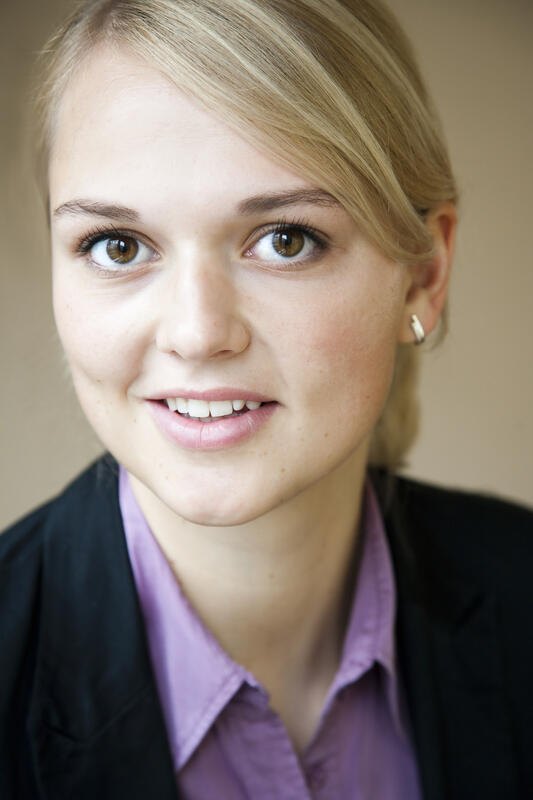REpowering Europe - How renewables can unite the continent?
ISES Board Member Anna Leidreiter talks about how renewable energy can unite the continent of Europe in this article, originally published in The Beam Magazine:
In times of Euroscepticism, nationalism and populism, those in favour of a united Europe urgently look for ways to reconnect the crisis-stricken continent. Renewable energy might be the answer.
Energy has always been a strategic element for national governments. Having control over energy infrastructure or energy resource deposits signals strength and power. The predecessor of the European Union, the European Coal and Steel Community (ECSC), was centred on energy. By creating a common market for two crucial resources, Europe was brought closer together after the war. However, the continent has always been dependent on energy imports to grow its economy. More than half of all the energy consumed in the 28 member states is imported, at a cost of more than €1 billion per day. Energy also makes up more than 20% of total EU imports.
With the European Union currently rethinking its future, the question on where the energy comes from to power our societies, create decent jobs and make our industries competitive is crucial. In times of Euroscepticism, nationalism and populism, those in favour of a united Europe urgently look for ways to reconnect the crisis-stricken continent. I believe that renewable energy might be the answer.
As Jo Leinen, German S&D Member of the European Parliament put it at one of the World Future Council´s workshops on this topic: “In the new energy world, national borders will not have the same meaning anymore.” In fact, renewable energy provides the opportunity for the EU to get closer again to its citizens, to revive democratic participation and to strengthen its core values.
Real world examples probably explain best why I am convinced of this:
The Dutch Gemeente Emmen and their German neighbour town Haren on the other side of the border are building a regional, decentralised and mostly communal cross-border renewable energy system: “We want to work with our neighbours in Germany to become carbon neutral and strengthen our local economy.” says Melinda Loonstra-Buzogány from the Dutch municipality Emmen.
The project is called “Smart Energy Region Emmen Haren” (SEREH). While the German Haren is already 147% self-sufficient by renewable electricity, the Dutch Emmen has only about 3% renewable electricity, mainly coming from solar PV. The excess renewable electricity in Haren is already causing grid problems and its transportation to users in other parts of Germany would require a very expensive extension of the grid.
Meanwhile, Emmen on the other side of the border has set itself the target to become CO2 emission free by 2050, consequently having a high demand for the excess power from Haren. However, transportation on the high voltage grid to the Netherlands is not only possible on negative prices due to national competing regulation, but also because of high taxation and interconnection costs.
SEREH is now aiming at harvesting several advantages by establishing an Interconnecting Medium Voltage Grid (DSO level) in Emmen and Haren:
- a) civic energy sources and local profit,
- b) less transport costs,
- c) no need to extend the grid,
- d) cheaper energy and d) emerge of new businesses.
To realize this, the municipalities rely on the European Union to harmonize the currently competing national legislations and support distribution system operators to work across national borders. This means, to overcome existing regulatory barriers and create tangible profits for the citizens, the local, national and the European institutions must work together.
This is something that also Veerle Dossche from the City of Ghent in Belgium shares. She is involved in the Burzaame Stroom” project, which is an initiative of the city government that helps increasing the share of renewable energy in a specific city district, by installing technical solutions and coaching people to save energy and to use their energy more wisely. A special focus lies on the integration of low-income families — a matter which is of equal concern for other municipalities in the EU. “We involve the people, because we can only achieve our political target of doubling the share of locally produced renewable energy from 7.5% in 2011 to 15% in 2019 (from total household consumption), if citizens are engaged and have ownership in this transition. Support from the regional or European government could facilitate this transition much faster.” says Veerle Dossche.
Policies to shift the power to the people
The good news is that in the coming months, there is a unique chance to make this a reality. The “Clean Energy for All Europeans” Package (also referred to as the “winter package”) is the new EU legislation, currently discussed in the European Parliament and Council. It will have a crucial impact on how the European Union harvests its large potential for renewable energy, whether citizens can benefit from it and whether communities can work together despite national borders. My work has taught me that there are three key things, such a legislative package need to include:
- Set a 100% Renewable Energy target for the EU to provide a common vision and streamline resources,
- empower citizens, cities and communities to engage actively in forming the new energy system and
- support cross-border cooperation between regions, municipalities and cities.
We know from history that energy plays a crucial role in providing peace, solidarity and stability! And in fact for Europe, it is only renewables that have the power to reconnect the member states, shift the power to the people and unite our continent. So let’s make sure that your representative in the European Parliament and your national government is on board for a united Europe, powered by 100% Renewable Energy.
Anna Leidreiter
Original publication, The Beam: https://medium.com/thebeammagazine/re-powering-europe-how-renewables-can-unite-the-continent-fee7a0ba8f03?mc_cid=955fc5bf7b&mc_eid=aaa75acde0

